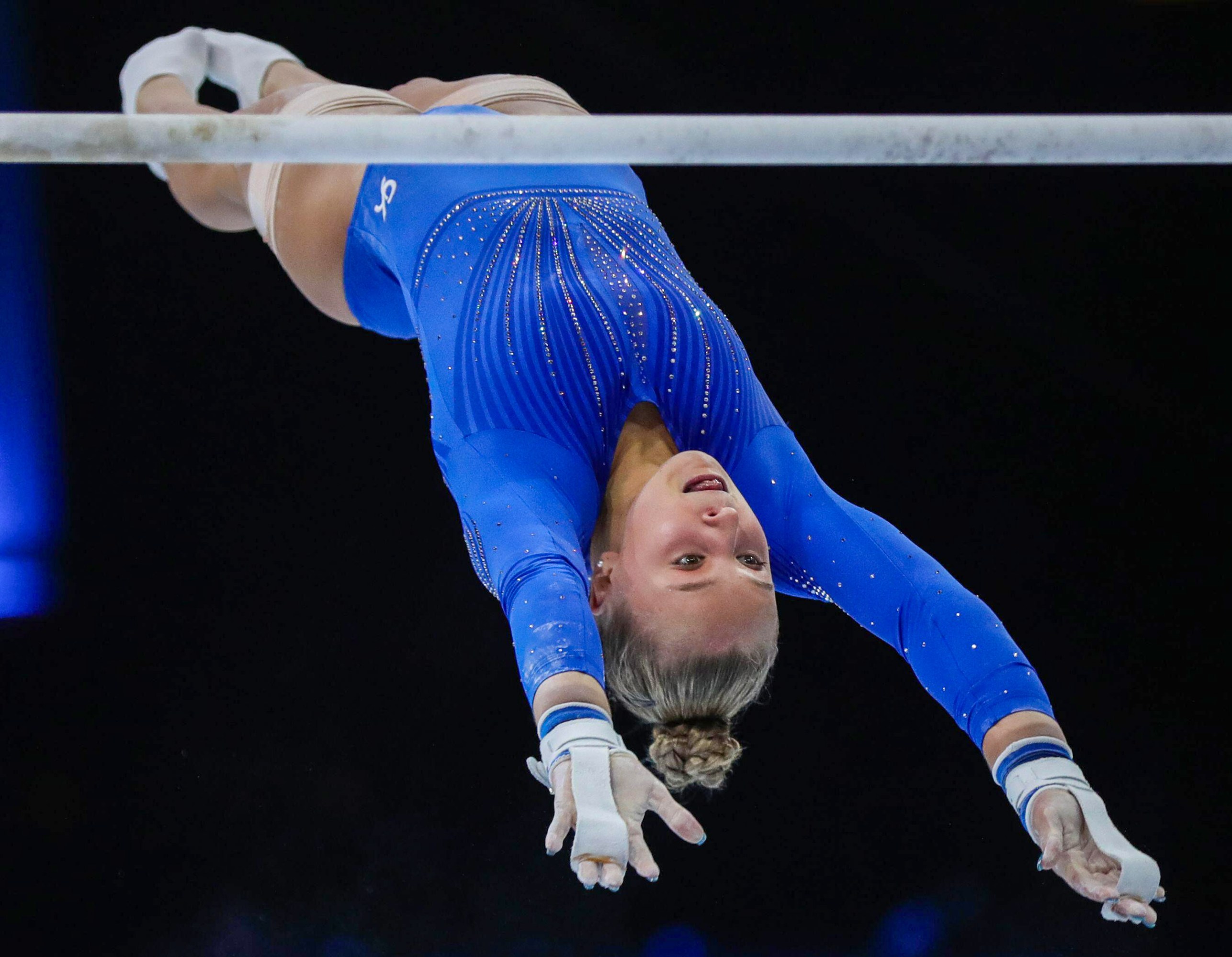JSS supporters also hope AI in gymnastics will have the power to eliminate the inevitable biases that humans bring to the judging booth. As it currently stands, judging is not particularly transparent; coaches and gymnasts agree it’s difficult to tell what goes on behind the scenes in scoring or inquiries.
This is further complicated by the fact that factors like nationality and body type can add a conscious or unconscious bias that influences scores. At the 2023 World Championships, for instance, gymnast Kaia Tanskanen knew that as a member of the Finnish team, she was at a disadvantage—what fans call a “leotard bias.” While judges may deny it, fans sometimes perceive “built-in deductions” for countries that don’t have the most competitive and elite programs—countries, in other words, that aren’t the US or Russia.

ZHENG HUANSONG/XINHUA/ALAMY LIVE NEWS
That’s one reason Kaia (whose coach is Kim Tanskanen, her mother) is hopeful about how JSS could change competition: “I feel like the scoring would be more even,” she says.
“Especially the smaller countries that compete internationally—I think the judges just have this assumption of what’s going to happen before they even start the routine, and they kind of judge based off that,” says Emma Spence, an elite Canadian gymnast who competed at the 2022 World Championships. “If we can eliminate that, I think it will make it a little more of a fair chance for everybody.”
While Butcher insists that judges “hopefully are leaving their biases behind them,” he too believes the JSS could help eliminate these factors and do more to create an even playing field.
Yet a lack of transparency around how and when JSS is used in competition may undermine this ideal. Score sheets at FIG events don’t currently include inquiries, so there are no recorded details about how routines were reviewed in competition, including whether JSS was used. Score sheets don’t include itemized deductions, either. In order to determine when JSS was used at the 2023 World Championships, I had to contact individual judges who are high up in the FIG; even they couldn’t tell me exactly how many times the JSS was used. This information simply isn’t recorded.
I was only able to confirm it was used in the case of Srbić after connecting with the men’s technical president; Srbić said via email that even he didn’t know if JSS was used to decide his inquiry.
Butcher told me that following the 2023 World Championships, athletes should have been sent a link to a website to see how their routines were judged by JSS, to help them make improvements. But when I contacted Kaia and Kim Tanskanen after the competition, they said she hadn’t received any information about AI judging either during or after the competition. (Butcher says this is likely a communication issue with the Finnish federation, though Satu Murtonen, the technical director of Finland’s Women’s Artistic Gymnastics, tells me, “Unfortunately, I don’t remember receiving any information about the robot judging.”)
